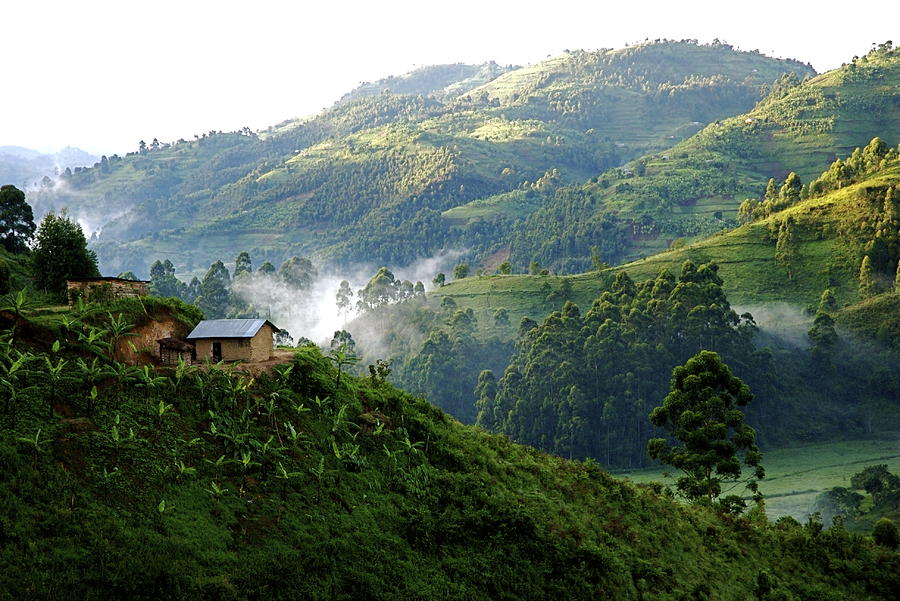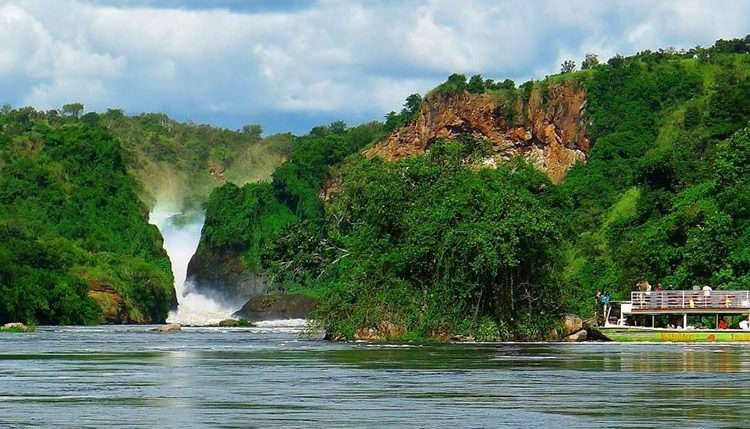Uganda is one of Africa’s safest countries to travel for ex-pats as well as tourists, consular and government staff on overseas missions. Over the years, there has been a tremendous improvement in the country’s travel safety.
Uganda is one of the countries where you don’t have to go out shopping for hard core helmets, bullet proof vests or even head to the gym to perfect your running skills prior to your visit. But instead, you will need to shop a nice swimming bikini, camera, cool ray bans and great jungle boots all to help you encounter the tranquil, unending wonders Uganda harbors.
However, like any other human inhabited community, petty crime often creeps in regardless. Political fracases often happen especially during political seasons. Trader strikes following increased rent, taxes or bad legislative laws are often evident in urban settings. But to the bigger part, such never affect visitors as they are always by and for the locals.
So, as always, we oblige in giving you deep insights about everything Uganda to aid you better know the country. In this article, we profile you the top 10 travel safety and security insights for anyone intending to visit or live in Uganda. Take a look:
1. Crime
In Uganda, there has been a tremendous reduction in crime rate. Petty crimes such as pick-pocketing, “snatch and run” thefts (including from occupied and unoccupied vehicles) still exist in Kampala but rarely involve acts of violence. Theft from hotel rooms is rear though been recorded in some areas.
With advance in technology, there is an increasing number of financial fraud cases involving credit cards, personal cheques, counterfeiting and phone hacks. These crimes could occur day and night.
However, with all these possible crimes, the most common reported crimes are of opportunity rather than planned attacks. Caution should be observed to the latter when visiting crowded areas such as open markets, down-town Kampala – known for large pedestrian numbers, trade shows and city carnivals. Seek a trusted and registered tour operator to guide you throughout your visit to better keep crime at bay.
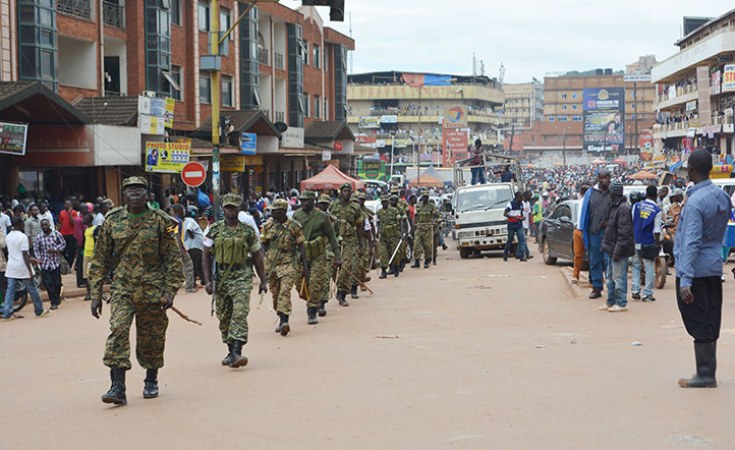
2. Political Violence
Uganda is a democratic country with a number of political parties which vie strongly during political seasons. Violence occurrences can appear anywhere any time during political campaign seasons. Violence could also be as a result of unwelcomed detentions and arrests of political figures. This lessens when voting is done until the next season. The political atmosphere during this season is always tense and fragile calling for utmost look out on personal security once you visit. Uganda’s populace is generally law abiding and thus less political violence outside the election period. Also note that politically motivated violence is less in rural areas of the country.
3. Civil Unrest
In Uganda, civil unrest, public protests, strikes and demonstrations all rank as minimal. Regardless, economically motivated demonstrations can surface irregularly with little to no warning. Most of these may result from increased commodity prices, increased transport fares, levies and taxes and unpopular legislations.
Almost all civil unrest takes place in urban areas of the country. Peaceful demonstrations such as public matches often turn confrontational and possibly violent when police response is not aptly applied. Visitors are highly advised to avoid demonstrations in any ways possible, and to exercise strong caution if in the vicinity of any demonstration. This is because you don’t know easier and possible escape routes in case of any eventualities.
4. Road Safety
According to World Health Organisation (WHO) data published in 2018, road traffic accidents deaths in Uganda reached 11,730 or 4.52% of total deaths. The same data ranked Uganda 15th in countries with the highest accident per vehicle worldwide. This can be attributed to the poor road usage by Ugandans. While driving on any given Ugandan road, it’s so common for anyone anywhere quickly jumping into the road crossing. Zebra crossings in urban settings are commonly seen as ‘Road Designs’ and are not respected or even duly recognized by road users.
Road accidents could also be attributed to untimely road maintenances, inadequately marked roads, less basic safety equipment and less lighting. Rural roads are less developed and could turn impassable in wet seasons. While in Uganda, it’s advisable to sorely rely on a trusted tour operator or booked tour company for your travel needs as they are better acclimatized to the road usage in the country.
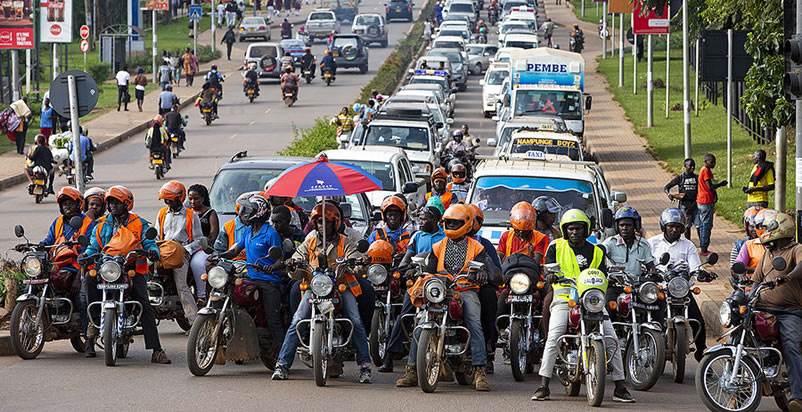
5. Natural Hazards
In Uganda, rapid-onset disasters can range from short-term food security calamities to flash floods, infectious disease outbreaks, and political crisis/conflict situations. Slow-onset disasters stem primarily from food insecurity due to drought.
All these are not a common occurrence but have happened at rear occasions in the past years. Flash floods have headlined this category majorly in parts of Bududa and Rwenzori highlands destroying properties and lives.
Disease out breaks are also rare though usually come around with fatalities. The Government has a fully-fledged ministry of disaster preparedness which is always on guard for possible occurrences and ready to spring into action. Visitors to Uganda are advised to be aware of the highlighted threats and take note of communications from relevant authorities on the state of such high risk areas.
6. Police Response
Over the years, the Ugandan police has made significant advances in their ability to react to crime and other incidents. Police patrols are daily activities throughout the city and urban areas. Police men aboard patrol cars are easy to spot while on your way around the city. However, the ratio of police to population remains low, a major hindrance to effective crime detection.
To enhance security in the country, local investors have created private security companies registered under the ministry of defense to enhance security especially to companies, businesses, schools and homes. Police response has improved with the enhanced technology and logistics to carry out rapid responses. The national emergency police response number in Uganda is “999”.
7. Foreign Exchange
There are a number of accredited foreign exchange points around the country. However, not all are authentic. Some have been reported as crime hot spots with people around masquerading as customers and later defrauding clients of their precious cash. You are always advised to exchange foreign currency at authorized banks, hotels and other legally authorized outlets with security and proper receipts should be obtained for all transactions.
Exchange receipts are required to convert unused Ugandan currency back to the original foreign currency. Penalties for exchanging money on the black market range from fines to imprisonment. Most hotels in Uganda do not accept credit cards and dollar currency and so are restaurants, shops and other local facilities, though major chain hotels in Kampala do accept them. This means that a visitor will have to carry hard cash most preferably local currency so as to easily check in and get served of local services. You are advised to carry considerate money to service your day’s activities and keep wallets and other valuables where they will be less prone to pick-pockets.

8. Disease
Malaria is top killer in Ugandan, especially in rural regions. This is majorly common in infants and pregnant women. Travelers who become ill with a fever or flu-like illness while traveling in a malaria-risk area and up to one year after returning home should seek prompt medical attention Covid-19 remains a global disaster. All the recommended health precautions should be followed to the later.
HIV is another disease that has affected the country for quite long. Visitors are highly advised not to engage in unprotected sexual encounters that could expose them to the disease. In case one was to indulge in any sexual activity, they should consider proper condom use for protection. Due to change in climates for visitors, colds flu and other related health issues could come up. Seek medical advice immediately and take keen caution. Make sure all the necessary pre travel vaccinations such as yellow fever have been under taken.
9. Medical Emergencies
Uganda’s competent medical facilities are majorly situated in urban areas and are scanty. There are less health facilities in rural areas that can easily handle a major emergency but the good thing is that most of these health centers have functional ambulances that could make emergency referrals faster. Visitors are advised to carry their own supplies of prescription drugs and preventive medicines, as well as a doctor’s note describing their medication. Serious illnesses and injuries often require travelers to be medically evacuated from rural areas to a location where adequate medical attention is available.
Such services are available locally but can be very expensive and are generally available only to travelers who either have travel insurance that covers medevac services or who are able to pay in advance the considerable cost of such services (often in excess of 40,000 USD). In case of any unusual health observations, one should immediately notify the in charge tour operator or Travel Company or even a partner he/she is travelling with. This would shorten the time span for emergency outreach.
10. In case you turn a crime victim
You should immediately contact the local police and the nearest corresponding country embassy or consulate for example in case of loss of important travel documents to goons, caused an accident, or once you are left stranded in unknown places. The police or embassy could help out by sending in personnel to get you out of an unknown place, help you find appropriate medical care, contact family members or friends, among others.
Although the investigation and prosecution of the crime are solely the responsibility of local authorities, consular officers can help you to understand the local criminal justice process and to find an attorney if needed. Generally, reporting a crime directly to nearest the police station will result in a quicker emergency response then relying on dialing “999”, the national police response hotline.
Important to note
On a visit to Uganda, always remember you’re a visitor away from home and take utmost caution to everything. Nothing like ‘I have always done this that way,’ it could probably be the opposite in Uganda which could turn out consequential. It’s always better to seek information from reliable sources and follow lead.
For example, much as everyone might know google maps (using GPS) as the most accurate navigation lead, in Uganda, the best GPS is by asking from the local natives. This is true is a sense that anything can happen in Uganda. Offices shift every day. Roads can be rechanneled to another direction and so on and so forth and thus a GPS address to a hotel could lead you to a bush or new construction site.
Visitors are strongly advised to review their personal safety and security posture, to remain vigilant and to be cautious by lowering their public profile when frequenting public places and landmarks. Visitors should also limit the amount of cash they carry and leave valuables, such as passports, jewelry, and airline tickets in a hotel safe or another secure place.
Otherwise, Uganda is a safe country and you will probably love your stay here. You are welcome.
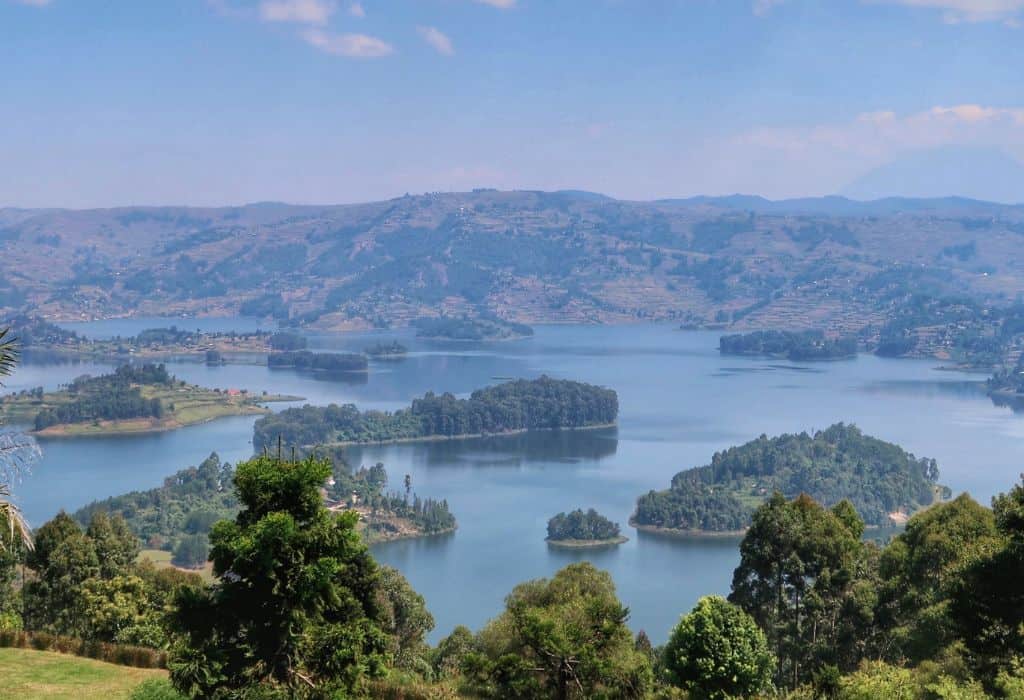
About Memoir Uganda – Showcasing Uganda
We are a comprehensive tourism, travel and aviation media company unleashing general tourism and travel information about Uganda. We offer, among others, an all-inclusive guide on everything Uganda such as itineraries, consular information, timely and updated tour and travel news and general information about visiting and living in Uganda.
To us, Uganda is more than a tour destination. It is our homeland. Our knowledge about Uganda is ocean deep and we love showing the country’s splendid beauty to the world. We aim at sharing and showcasing Uganda to the tiniest bit, better than anyone else.
Our Memoir Uganda magazine showcases Uganda’s diverse potential in detail that is often left out and unknown. You ought never to miss a copy. We robustly believe that traveling should make the world a better place for everyone.



